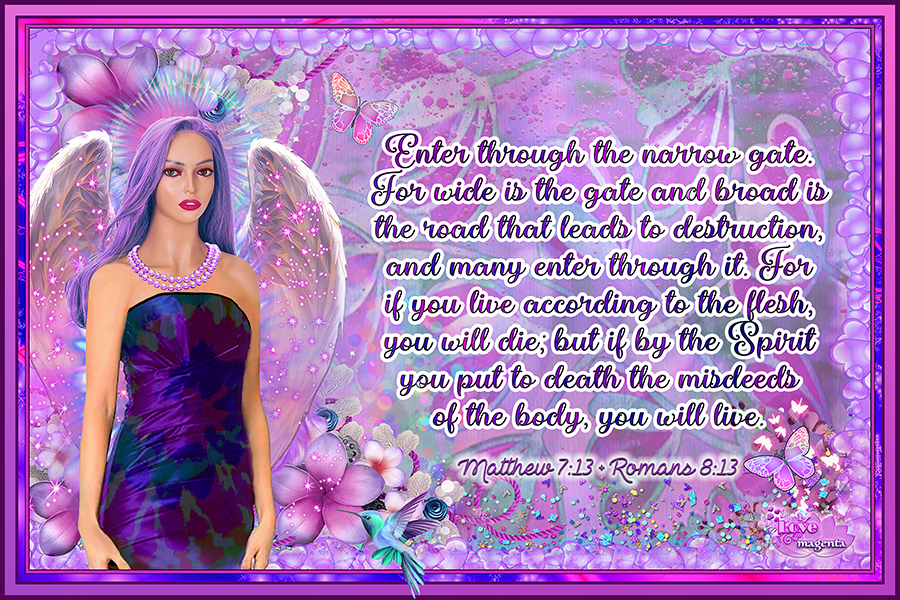It was surprising to me to read recently that Charles Spurgeon, "the Prince of Preachers" and known to be a conservative theologian, apparently believed that, in the end, there would be more in Heaven than in Hell. Seems surprising, since he also believed in limited atonement. Bible passages and reasoning below. Spurgeon argues from (1) Rev 7:9 where it is said a Great Multitude will finally be saved. Now, since it is nowhere said that there will be a Great Multitude in Hell, Spurgeon argues that the number of the saved must be at least 50%, i.e. greater than those in hell. (2) He also argues from various parables and passages where the Lord says "many" will come and enter the Kingdom from East and West etc. Thoughts on all this, friends?
Article/source below: https://www.thegospelcoalition.org/article/people-saved/
"2. Believers Should Be Hopeful for a Great Salvation
“In the lack of people is the downfall of a prince” (Prov. 14:28). Will God have such a problem? Charles Hodge wrote that, on the basis of God’s electing grace:
We have reason to believe . . . that the number of the finally lost in comparison with the whole number of the saved will be very inconsiderable. Our blessed Lord, when surrounded by the innumerable company of the redeemed, will be hailed as the . . . Savior of Men, as the Lamb that bore the sins of the world.
The number of the saved shall in the end be not small but large, and not merely absolutely but comparatively large; . . . to speak plainly, it shall embrace the immensely greater part of the human race.
Finally, Charles Spurgeon preached:
I do abhor from my heart that continual whining of some men about their own little church as the “remnant”—the “few that are to be saved.” They are always dwelling upon strait gates and narrow ways, and upon what they conceive to be a truth, that but few shall enter heaven. . . . I believe there will be more in heaven than in hell . . . because Christ, in everything, is to “have the pre-eminence” (Col. 1:18) and I cannot conceive how he could have the pre-eminence if there are to be more in the dominions of Satan than in paradise. Moreover, it is said there is to be a multitude that no man can number in heaven; I have never read that there is to be a multitude that no man can number in hell.
Of all people, those who affirm the Bible’s teaching on unconditional election (Rom. 9:16) have reason to hope for a vast election. This is because salvation doesn’t rest on people’s willingness to choose grace, but on God’s free choice. He can have mercy on those we think are beyond repair. If we insist that only a few are saved, we risk subjecting God’s saving work to statistical probability. And if he hardly saves anyone, then why should I suspect he’ll save me or others?"
Article/source below: https://www.thegospelcoalition.org/article/people-saved/
"2. Believers Should Be Hopeful for a Great Salvation
“In the lack of people is the downfall of a prince” (Prov. 14:28). Will God have such a problem? Charles Hodge wrote that, on the basis of God’s electing grace:
We have reason to believe . . . that the number of the finally lost in comparison with the whole number of the saved will be very inconsiderable. Our blessed Lord, when surrounded by the innumerable company of the redeemed, will be hailed as the . . . Savior of Men, as the Lamb that bore the sins of the world.
Of all people, those who affirm the Bible’s teaching on unconditional election have reason to hope for a vast election.
Likewise, Warfield said,
The number of the saved shall in the end be not small but large, and not merely absolutely but comparatively large; . . . to speak plainly, it shall embrace the immensely greater part of the human race.
Finally, Charles Spurgeon preached:
I do abhor from my heart that continual whining of some men about their own little church as the “remnant”—the “few that are to be saved.” They are always dwelling upon strait gates and narrow ways, and upon what they conceive to be a truth, that but few shall enter heaven. . . . I believe there will be more in heaven than in hell . . . because Christ, in everything, is to “have the pre-eminence” (Col. 1:18) and I cannot conceive how he could have the pre-eminence if there are to be more in the dominions of Satan than in paradise. Moreover, it is said there is to be a multitude that no man can number in heaven; I have never read that there is to be a multitude that no man can number in hell.
Of all people, those who affirm the Bible’s teaching on unconditional election (Rom. 9:16) have reason to hope for a vast election. This is because salvation doesn’t rest on people’s willingness to choose grace, but on God’s free choice. He can have mercy on those we think are beyond repair. If we insist that only a few are saved, we risk subjecting God’s saving work to statistical probability. And if he hardly saves anyone, then why should I suspect he’ll save me or others?"
-
1
-
1
- Show all

